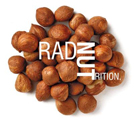I’m sure you’ve heard all about the potential benefits of coconut oil, but do you know which types are available, which one may be better for your health, and which type you’re using?
Let’s start with the main types of coconut oil:
- Unrefined or Virgin: extracted from the fruit of fresh mature coconuts without using high temperatures or chemicals. Unrefined coconut oil has phenolic compounds which have been associated with antioxidant and anti-inflammatory properties. It has a light, sweet-nutty coconut flavor and aroma and is ideal for baking or sautéing up to 350°F.
- Refined: made from dried coconut meat that’s often chemically bleached and deodorized. This oil is tasteless and can be used for baking or for medium-high heat sautéing, up to about 425°F.
- Partially Hydrogenated: further processed by manufacturers and often found in commercial baked goods. Hydrogenating the oil transforms some unsaturated fats to trans fats which can increase our LDL (“bad” cholesterol) and decrease HDL (“good” cholesterol).
One small study looked at obese adults who were on a low calorie diet and were supplemented with 30mL coconut oil daily. Results showed decrease in waist circumference but no statistical change in weight or fat mass. In another observational study, participants with normal cholesterol levels who reported ~30mL intake of coconut oil daily showed increased HDL (“good”) cholesterol, but also had an increased in LDL (“bad”) cholesterol. Consumption of unsaturated vegetable oils such as olive or canola did not show a similar increase in LDL cholesterol when compared to coconut oil. High LDL has been linked to increased risks of heart disease, however this link is currently being re-analyzed by many in the medical community.
It has been suggested by some that the short and medium chain saturated fats in coconut oil may have health benefits because they can be metabolized quickly, used for energy rapidly, and may play a role in immune function/ infections/ viral conditions. At this time, there is insufficient evidence to support weather or not these health claims are true. Additionally, it is unclear if the lauric acid in coconut oil which raises HDL results in a cardiovascular protective effect or if the raised LDL is harmful to our hearts.
Overall, small amounts of unrefined coconut oil could be part of a healthy diet. It is important to remember that it’s rarely just one thing that “causes heart diseases” or rarely do we find a magical oil or pill that cures all that ails us. It’s about your lifestyle, your fiber intake, your activity levels, your mood, your sleep and many other things that work together to decrease or increase our risk of heart disease.
References
http://www.eatright.org/Public/content.aspx?id=6442477202
http://www.eatrightontario.ca/en/Articles/Fat/I-ve-heard-that-coconut-oil-is-the-best-oil-to-use.aspx#.U7NUX_ldV-h
http://www.ncbi.nlm.nih.gov/pubmed/23674795
http://www.healthcastle.com/nutrition-faceoff-coconut-oil-vs-olive-oil
http://advances.nutrition.org/content/4/3/294.long
http://www.pennutrition.com.ezproxy.library.ubc.ca/KnowledgePathway.aspx?kpid=2878&pqcatid=146&pqid=2946
